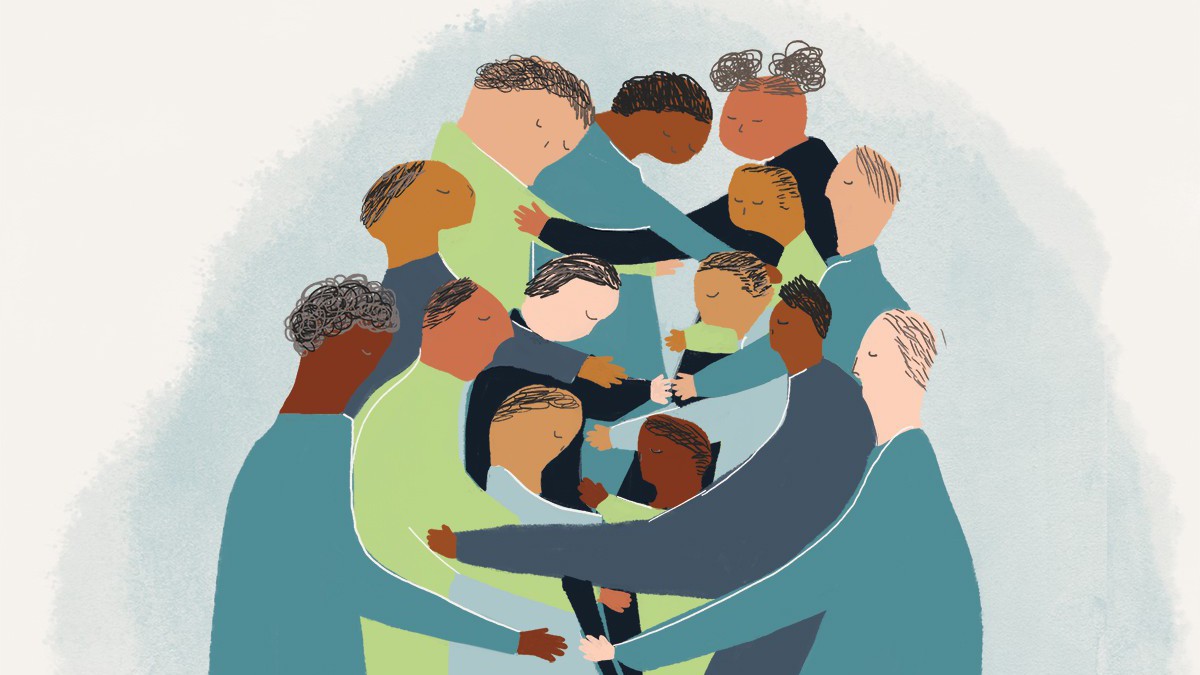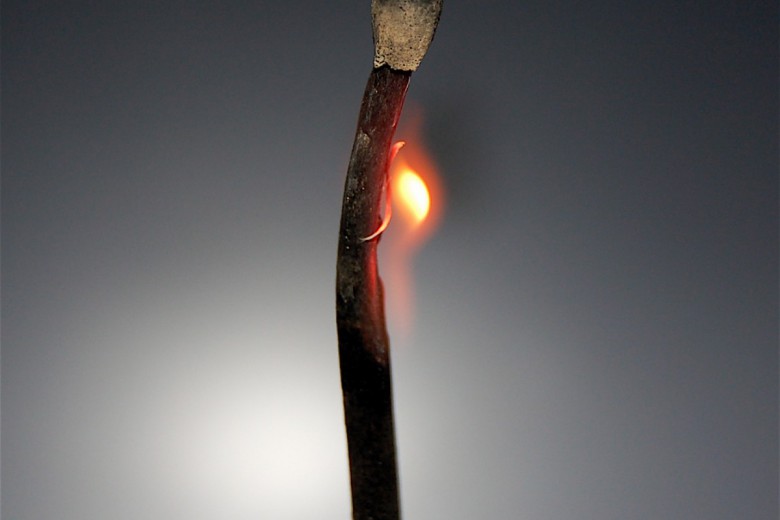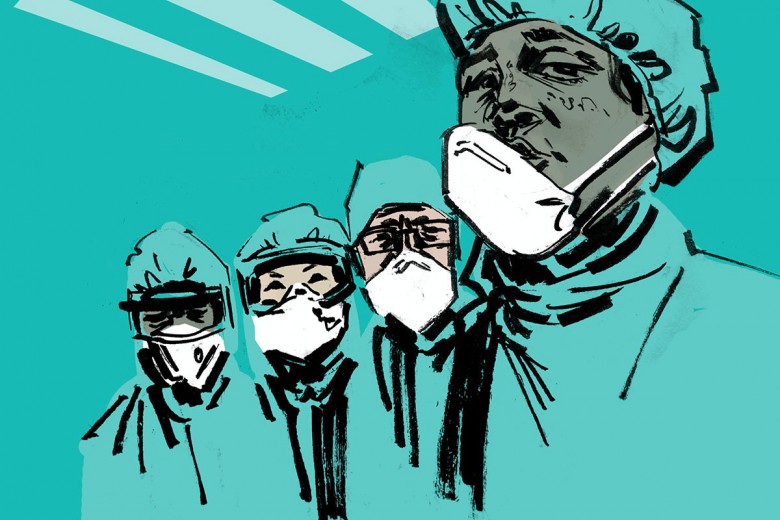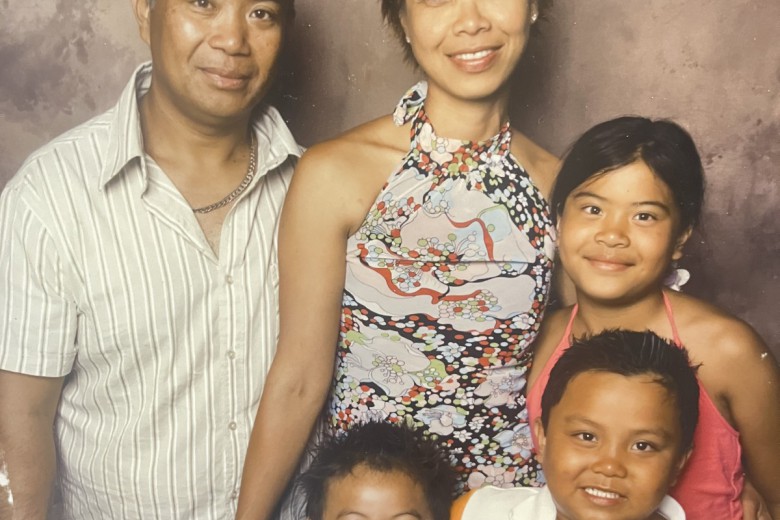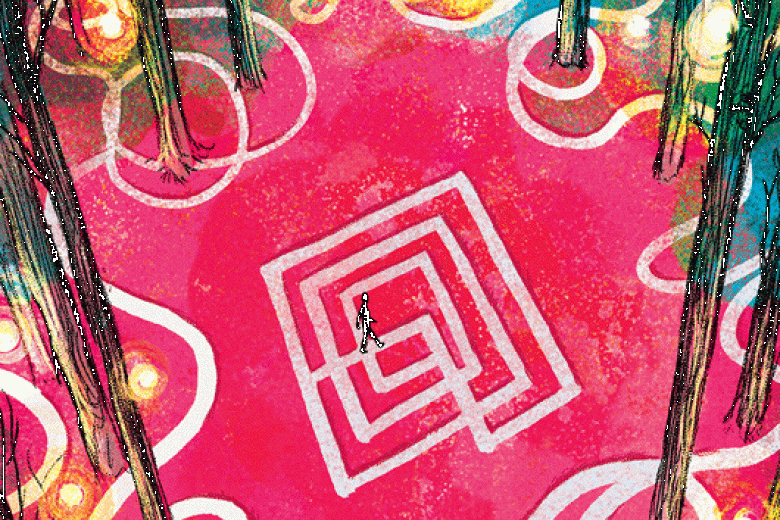“I felt exhausted and alone. I didn’t feel like my comrades had any affective relationships with me or each other. The struggle had actually become a job. We rarely wondered what everyone was going through. […] Over time, I found no meaning or value in my activism. I felt emotionally and physically empty. I no longer wanted to move myself to go to the demos or to meetings because it exhausted me instead of leaving me energized.”
This is what Laykü,* who was an organizer with solidarity movements and migrant justice groups in Montreal, told us it felt like at the beginning of their burnout.
Why are activists burning out, and what can be done to stop it? During the 2012 student movement in Quebec, Rushdia contributed to forming the group Politics & Care, a collective of activists and community organizers dedicated to addressing this question. The group’s activities include holding discussion circles and facilitating workshops on integrating care into political work.
Collective care refers to seeing members’ well-being – particularly their emotional health – as a shared responsibility of the group rather than the lone task of an individual.
This article unpacks the most common organizing dynamics that lead to burnout, and explores ways in which collective care can be integrated into organizing politics and practices. It is directed mostly toward anti-authoritarian, non-hierarchical grassroots groups.
Collective care refers to seeing members’ well-being – particularly their emotional health – as a shared responsibility of the group rather than the lone task of an individual. It means that a group commits to addressing interlocking oppressions and reasons for deteriorating well-being within the group while also combatting oppression in society at large. It places an emphasis on joint accountability, with the aim of collective empowerment. These ideas originate from queer and Black feminist organizing, such as the Combahee River Collective, and disability perspectives. It’s encapsulated in the phrase, “Be careful with each other, so we can be dangerous together.”
We build on previous discussions of problematic dynamics, and critiques of neoliberal notions of self-care – notably, an editorial from Upping The Anti, “Who cares?: The politics of care in radical organizing” – to further the conversation about collective-care-oriented solutions.
Power and control
We all know of an activist group that brands itself as “non-hierarchical” but is riddled with unspoken and insidious hierarchies. When some activists organize without sleeping for days or can dedicate all their time to organizing, it puts pressure on other members to match their standards of productivity and output. Those who contribute at extreme levels often gain more knowledge of the group’s goings-on, build more social capital, and claim more decision-making power. The invisible hierarchies that are created are hard to name and harder to dismantle.
Some form of privilege related to race, class, ability, gender, and sexuality is typically what underlies hierarchies based on involvement and decision-making power.
“Often the directly affected people, like migrants, who need to care for their families and struggle to make the ends meet, are not able to be present in every meeting,” Ani,* a migrant justice grassroots organizer, notes. As a result, those directly affected don’t have much say in the group.
Organizing spaces often lack a true commitment to democratic decision-making processes. Discussion and debate are sacrificed in the face of an ever-looming sense of urgency. Dominant members make the call on most decisions and the rest of the members are left frustrated and disempowered.
We all know of an activist group that brands itself as “non-hierarchical” but is riddled with unspoken and insidious hierarchies.
Hoarding power and responsibility can turn into a vicious cycle. Those who take on too much often end up having short fuses, especially at crunch times when fatigue accumulates. They’re less likely to show patience toward people learning the ropes, or show forgiveness for mistakes. This alienates newer members and leaves senior members feeling like they have no choice but to take on more responsibility, and control more of the group’s decisions. This pattern also leads to burnout, although this form of burnout stems from overwork rather than disempowerment.
Activists – especially senior ones – should reflect on how many groups they are a part of, and how much space they take up in each group. As the activist adage goes, “when you take a step back, someone else takes a step forward.” At the same time, this calls for more experienced activists to focus on building institutional memory, and on integrating and retaining new members through mentorship and centring those who have been marginalized.
Above all, re-humanizing our approach by caring more consciously about people and their needs could make organizing a nurturing and sustainable experience.
Reliability and accountability
Laykü points to dynamics that eroded not only his personal well-being but that of the collective.
For example, when a venue needs to be booked for a panel discussion, or a poster needs to be designed for a demonstration, and a group member volunteers to do it, the group has a sense of forward momentum; the organizing can continue from there.
But if the person who volunteered cannot be reached or other-wise falls off the radar, it can be disempowering for the group because such an interruption impedes their immediate plans and broader goals.
Dominant members make the call on most decisions and the rest of the members are left frustrated and disempowered.
Moreover, trust is broken. In this kind of situation, Laykü recalls, “if the event or action happens at all, it is only for the sake of it. There’s not much success or impact in the end, nor a sense of group accomplishment.” In Laykü’s experience, “[afterward,] people don’t want to take responsibility, and we don’t have any real spaces for collective learning from our mistakes.”
In the best-case scenario, people inform fellow organizers if they cannot do an assigned task. There are valid reasons for not completing tasks: health, family emergencies, or other priorities. Besides reliability, accountability is important. While accountability is a rich and complex term, here it means to acknowledge and take responsibility for the repercussions that one’s actions may have on others in the group. “A sincere apology is often a good start,” says Laykü.
In the 2001 ChangeWork publication White Supremacy Culture, Kenneth Jackson Jones and Tema Okun propose coming to an agreement of how the work will be carried out before tasks begin. This can include laying out the various steps involved, setting deadlines, and articulating expectations for following up. Making a habit of debriefing after events – assessing what worked, what didn’t, and how to improve – can help to avoid repeated mistakes, or at least restore some lost trust.
Internalized capitalism
“In a fast-paced world where political, social, and environmental crises are unrelenting, the sense of urgency is mounting,” says Pascale Brunet, a community organizer and co-initiator of Politics & Care. “Mix that with the pressures of capitalism to do more, always more productivity and efficiency. The message we get is that we’re not enough.”
Laykü provides a snapshot from inside a group: “My group [had been infiltrated more] by the values and practices of the neoliberal and capitalist mindset – performance-focused, individual success, gendered division of labour, et cetera – than we would have confessed.”
“Mix that with the pressures of capitalism to do more, always more productivity and efficiency. The message we get is that we’re not enough.”
The pressure to be productive is one reason why people over-involve themselves in activism, which leads to the previously mentioned hoarding of power.
This dynamic calls for feminist and anti-capitalist ethics of care: focusing on and acknowledging effort and impact rather than performance or outcome; encouraging interdependence through shared and rotating tasks; and affirming and supporting members regardless of their level of output.
Language and accessibility
“Not everyone has the lingo and the politically correct and appropriate language, which often excludes people,” Ani laments. “Right now, structures are not conducive to those who are marginalized by the issue. They cannot take the space in a meaningful way.”
Academic language doesn’t resonate with many working-class communities – usually, it only serves to show off the speaker’s privilege of being university educated. Demanding that everyone use the most recent iteration of politically correct language, concepts, and jargon can alienate the directly affected people, whose grounding in the issues comes from personal experience.
Of course, this isn’t to say that we should excuse people who repeatedly and deliberately use archaic language that’s hurtful or false. For example, it’s essential that group members respect people’s pronouns or ways to describe their gender and sexuality.
In an Everyday Feminism article on how to make social justice less elitist and more accessible, Kai Cheng Thom details the need to create accessible spaces in terms of physical and economic accessibility, in addition to language: “We also need to ensure that folks with children, people on welfare and fixed incomes, and basically anyone who might not have access to a lot of money and time can participate in community building.”
Emotional labour
It’s no secret that our organizing spaces exist within and alongside systems of oppression at the intersections of race, gender, class, sexuality, and disability. We see burnout among women organizers – especially women of colour – because sexism and racism exist in organizing spaces in a way that reflects broader systems of gendered and racial oppression. Emotional labour is overwhelmingly borne by women-identified folks and women of colour even while it is devalued.
Academic language doesn’t resonate with many working-class communities – usually, it only serves to show off the speaker’s privilege of being university educated.
“In most activist circles, there is a theoretical understanding of power relations, oppressions, and privileges,” explains Brunet. “[Though we may] denounce the systems of oppression that structure our lives, it is sometimes much more complex to recognize when these same systems slip into our interpersonal relationships and our intimate relationships.”
To dismantle these oppressions more broadly, we need to be careful that the responsibility of care and relational work within groups doesn’t fall solely on women – especially women of colour – who take it on in addition to gritty organizing work. Within many groups, women tend to fight for the health of a group, sometimes to the detriment of their personal well-being, while men – especially white men – leave the group when things get tough.
“So much of our relationships are around the organizing work that we don’t know the people with whom we organize. We don’t have time and space for having holistic relationships. We have no idea what other things people are going through. This rhythm doesn’t allow us to build solidarity with each other,” reflects Ani, with concern.
She suggests, “We need to think about how people around us are doing; we need to get away from professionalism, [where] all that matters is organizing work – we come, we meet, we have tasks, and then it’s like we don’t really know each other.”
Furthering collective care
We’ve found that the common thread between groups with poor practices of care is a lack of open communication between group members – and often the biggest challenge is to get people to sit together and have conversations about these issues.
Starting regular meetings with a check-in – where each member shares how they’re doing, what’s on their minds, and whether they have specific needs during the meeting – can be a good way to foreground care and help strengthen the group. Outside of meetings, authentic discussions and genuine solidarity can start with a simple but sincere “how are you doing?” Finding allies within the group can also help build a culture of care.
Finding allies within the group can also help build a culture of care.
Check-ins aren’t always enough to get to the root of issues, though. It can be useful to create a structured space dedicated to discussing people’s feelings and care needs. In over five years of Politics & Care work, we’ve found that inviting an external facilitator (someone from Politics & Care, for example) allows for in-depth discussions that can lead to healing. On occasion, we’ve conversed with members individually on having difficult conversations with the group. Sometimes it took months or even years before a group was able to hold a collective care meeting where members felt heard. In other cases, we’ve witnessed groups where members push for a collective care meeting to address problematic group dynamics, but those very dynamics – a devaluation of care work, or a capitalist work ethos – led other members to dismiss concerns and refuse to make time for the meeting.
In 2017, Politics & Care published a set of prompts for groups looking to reflect on their culture of care (or lack thereof) in “Caring about thriving,” featured in the student-community resource, Convergence Journal. Those questions, and the above strategies, can make a difference in how people feel in activist groups and in the long-term sustainability of our movements. The challenges we face in the world are enormous, and taking them on requires that we look after one another.
*Names have been changed
Update, February 18, 2021: This article has been updated to reflect that Laykü was involved with solidarity movements.
Additional resources:
Safer Spaces: Building respecting, equitable, and enabling spaces
A downloadable pamphlet developed by Politics & Care.
Sustainable activism and avoiding burnout
A resource for activist self and mutual care.
Self as other: Reflections on self-care
A critical, anti-capitalist analysis of self-care, published by Crimethinc.
Three Thoughts on Emotional Labour
A basic overview of emotional labour, published in GUTS Magazine.
Read David Camfield’s response to this article on the Briarpatch blog.


